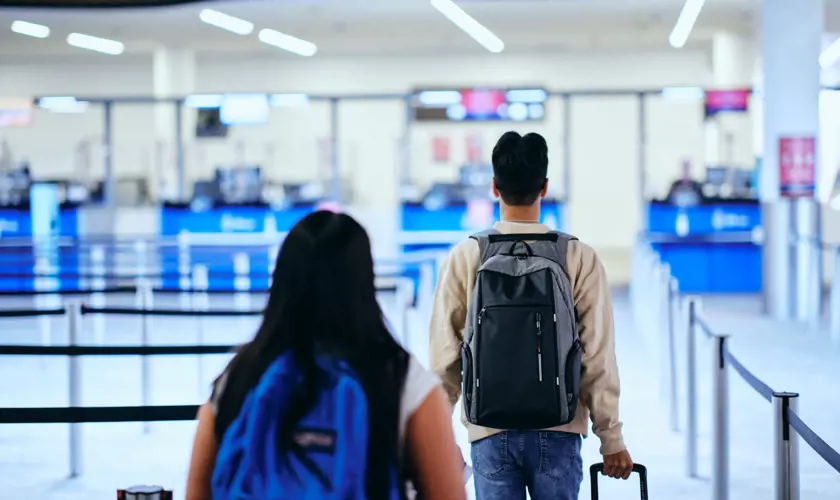Study Perth Highlights the core findings of the Governments new migration policy: Enhancing Integrity and Quality in International Education
Introduced a first set of measures to improve integrity in international education and support genuine students
Closing Loopholes: Eliminated a loophole enabling international students to switch to lower-quality providers for work before studying.
Financial Eligibility Increase: Raised the savings requirement for student visas to $24,505, reflecting higher living expenses.
ASQA Capacity Boost:
- Invested $37.8 million to strengthen the capacity of the national VET regulator, Australian Skills Quality Authority (ASQA)
- Established an Integrity Unit to proactively address integrity risks in the international VET sector.
- Facilitating a compliance blitz to target non-genuine providers exploiting international students.
Fit and Proper Person Requirements:
- Strengthened fit and proper person requirements for VET providers.
- Signalled intent to change this test in the Education Services for Overseas Students Act 2000 (ESOS Act).
Accountability Measures:
- Committed to making education providers more accountable for their agents.
- Increased provider reporting requirements and consideration of prohibiting agent commissions for onshore transfers between providers.
Risk Indicators and Compliance Actions:
- Committed to developing new risk indicators for international education.
- Building a whole-of-system risk framework to guide compliance actions by education providers.
- Considering the use of suspension certificates under Section 97 of the ESOS Act for high-risk education providers.
Regulation of Education Agents: Exploring the regulation of education agents through the expansion of the Office of the Migration Agents Registration Authority.
This comprehensive set of measures aims to restore integrity to international education, enhance the competitive advantage of the Australian sector, and alleviate migration pressures by discouraging non-genuine students and providers.
Increase English language requirements to improve the quality of students’ educational experience in Australia and reduce potential workplace exploitation
IELTS Score Increases:
- Temporary Graduate visa IELTS requirement rises from 6.0 to 6.5.
- Student visa IELTS requirement increases from 5.5 to 6.0.
- ELICOS students' IELTS requirement before main courses increases from 4.5 to 5.0.
- University foundation or pathway program students need IELTS 5.5.
Benefits of Elevated Standards: These adjustments aim to deliver numerous advantages to various stakeholders.
- Enhancing the overall educational experience.
- Elevating international students' outcomes in the labour market.
- Reinforcing the integrity and reputation of the international education sector.
- Mitigating workplace exploitation of international students.
Education Provider Reporting Strengthened: In tandem, the Government will fortify education provider requirements to report students’ English language proficiency during enrolment.
These changes signify a commitment to ensuring higher standards in language proficiency, fostering positive educational experiences, and safeguarding international students from potential exploitation in the Australian labour market.
Apply greater and more targeted scrutiny to student visa applications from high-risk providers
Enhancing Student Visa Integrity:To fortify processing integrity in the student visa caseload, two new Ministerial Directions will be introduced.
First Ministerial Direction:
- This direction will guide decision-makers by emphasizing key considerations such as the applicant's academic or career progression and the relevance of the intended study to future career prospects.
- Clear expectations for student behaviour will be outlined, and those not meeting the requirements will not be granted a student visa.
Second Ministerial Direction - Processing Prioritization:
- This direction, effective by late 2023, will prioritize student visa applications based on provider risk levels.
- Aimed at supporting the 2023–24 student visa peak season, it will lead to slower processing times for higher-risk providers as decision-makers assess both provider integrity and individual student applicants.
These Ministerial Directions signify a proactive approach to uphold the integrity of the student visa system, ensuring that decisions align with the applicant's circumstances and prioritizing processing based on risk levels for a robust and secure immigration process.
Bolster the student visa integrity unit in the Department of Home Affairs to reduce misuse of Australia’s student visa system
Strengthening Student Visa Oversight: In alignment with the introduction of the Genuine Student test, the Australian Government will commit $19 million to substantially enhance the student visa integrity unit within the Department of Home Affairs.
Mitigating Visa Misuse: This investment aims to curb the misuse of student visas, particularly by those attempting to work in Australia rather than pursuing legitimate study and individuals seeking to exploit international students.
Enhanced Scrutiny and Analytical Capabilities:
- The increased funding will enable heightened scrutiny during the application process, facilitating the identification of non-genuine students.
- New analytical capabilities will be developed to identify individuals, facilitators, and agents involved in post-arrival misuse of student visas.
Collaborative Compliance Activities: The reinforced student visa integrity unit will collaborate with ASQA's new integrity unit, engaging in cross-agency compliance activities to fortify the overall integrity of the international education sector.
This commitment underscores the government's proactive measures to safeguard the integrity of Australia's student visa system, ensuring that it is utilized for genuine educational purposes and preventing exploitation and misuse.
Strengthen requirements for international education providers Ensuring Integrity in International Education:
Acknowledging the significance of Australia's international education sector, the government is committed to maintaining a high-quality system by implementing robust integrity measures.
Focus Areas: The efforts will concentrate on enhancing integrity, quality, entry requirements, and student support to target non-genuine providers.
Building on Nixon Review and Committee Recommendations: This initiative builds upon the government's response to the Nixon Review and considers recommendations from the Joint Standing Committee on Foreign Affairs, Defence and Trade Inquiry.
Legislative Changes: The government will take legislative action to support regulators in addressing unscrupulous provider behaviour, fostering a more accountable and transparent international education landscape.
Collaborative Engagement: Engaging with the sector, the government will seek input for the development and implementation of these measures, promoting collaborative efforts to enhance the integrity of the international education sector.
International Education Strategic Framework: A comprehensive International Education Strategic Framework will be developed in collaboration with the sector and the Council for International Education.
Ensuring Prosperity: Through close collaboration, the government aims to ensure the ongoing prosperity of Australia’s international education sector, delivering high-quality education to genuine students.
This multifaceted approach demonstrates the government's commitment to fostering a thriving international education sector while addressing challenges and ensuring the sector's sustained integrity and prosperity.
Restrict onshore visa hopping that undermines system integrity and drives ‘permanent temporariness’
Addressing Visa Hopping Challenges: Australia's student visa program, historically a magnet for global talent, faces challenges with some international students engaging in 'visa hopping' to extend their stay without realistic prospects of permanent residency.
Scrutiny for Subsequent Student Visas:
- The Government, utilizing the Genuine Student test, will subject international students applying for subsequent visas inside Australia to additional scrutiny.
- Eligible students must demonstrate that their new course aligns with career or academic goals, ensuring sensible course progression.
Focus on Genuine Career Development: The Genuine Student test emphasizes the need for international students to pursue qualifications that enhance career development, bridging academic and practical skills.
Restrictions on Temporary Graduate Visa Holders:
- To address the trend identified by the Grattan Institute, Temporary Graduate visa holders will be restricted from transferring back to student visas while onshore.
- This move aims to prevent graduates from returning to study solely to prolong their stay in Australia, particularly in the VET sector.
- The government has revised the Temporary Graduate Visa (TGV) durations for international students. Under the new policy, most international students will see a reduced period of stay. However, Initial stay periods for Indian nationals are exempt, as agreed in the Australia-India Economic Trade Agreement. See page 68 of the Migration Strategy for further details.
Enhancing Permanent Residency Prospects:
- These changes, combined with future adjustments to the points test and skilled visa settings, aim to support graduates working in skilled roles to secure permanent residency.
- The goal is to reduce the number of graduates in limbo, staying without realistic prospects of permanent residence.
Further Changes to Address Onshore Visa Hopping:
- The government is actively considering additional measures to restrict onshore visa hopping, particularly when it circumvents offshore processes.
- Further announcements on these changes are expected in early 2024.
These strategic adjustments seek to preserve the integrity of Australia's student visa program, encourage genuine career development for international students, and address the challenges posed by visa hopping for temporary graduate visa holders.
Strengthen and simplify Temporary Graduate visas
Enhancing Graduate Visas: Recognizing the challenges faced by former students, the Australian Government is implementing reforms to strengthen graduate visas, aligning with recommendations from the Migration Review.
Addressing 'Permanently Temporary' Status:
The Migration Review identified that former students form a significant portion of 'permanently temporary' migrants, with over 50% of Temporary Graduate visa holders working in low-skilled jobs.
Reforming Post-Study Work Rights:
Adjustments to post-study work rights aim to ensure graduates are employed at their skill level, addressing skills needs and avoiding a 'permanently temporary' situation.
Focus on Skilled Job Placement: Graduates working in skilled jobs will have the opportunity to apply for the new Skills in Demand visa or a permanent skilled visa without requiring a two-year extension solely based on their qualifications.
Alignment with International Practices: These changes bring Australia's graduate visa settings in line with comparable countries and are consistent with international trade agreements.
Simplified Application Process: The government is simplifying graduate visas to enhance the applicant experience and accelerating the transition between student and graduate visas.
Strengthened Pathways to Skilled Visas: The pathway from graduate visas to temporary skilled visas is being reinforced, providing employers with more certainty about a graduate's ongoing work rights and pathways to permanent residence.
Migration Level Impact: These comprehensive changes aim to reduce migration levels by encouraging graduates with fewer prospects of permanent residence to leave the country.
The government's commitment to these reforms reflects a strategic approach to ensure that graduate visas align with skill levels, promote career advancement, and contribute to Australia's long-term economic goals.
Related news and blogs
Keep up to date with everything happening in Perth with the latest news, events and stories.




